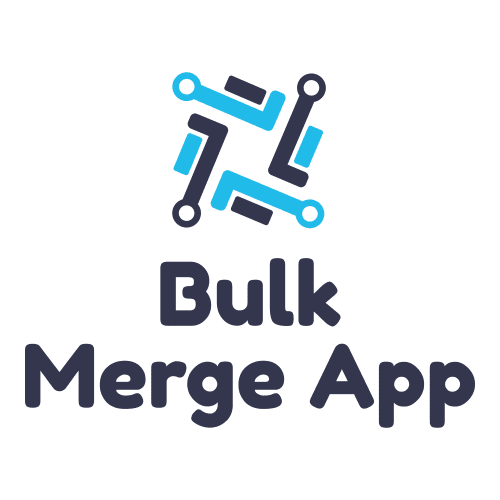What Is Reliability Testing and Why Does It Matter for Your CRM?

Customer relationship management is at the heart of most successful modern businesses. But your chosen CRM software is only as helpful as the data that it provides. Since these systems evolve at a constant rate, they require reliability testing to ensure consistent, high-quality outputs.
New users may find themselves asking — what is reliability testing? This process is designed to pinpoint problems within your chosen CRM software. If you’re proactive about reliability testing you can greatly improve the efficacy of your CRM software.
What Is Reliability Testing?
Software reliability testing is a way of ensuring that all of the features of your CRM software are working properly during each executed step. This includes the various steps involved in data input, integration, and output. It’s a great way to ensure that your software continues to operate without any failures.
Reliability testing is not just a helpful step for moving your business out of beta testing. In fact, it can guarantee that your system continues to work over time in all applicable environments. It’s a crucial part of any reliability engineering program.
Compared to other types of testing, reliability testing can take up a large part of your budget. But faulty CRM software almost always leads to costly mistakes in the long run. Examples of potential problems include dangerous misrepresentations of customer data and inefficiencies, or miscommunications between your business’s various teams.
There is no one correct way to conduct reliability testing. Instead, you need experts that are capable of applying the general principles of reliability testing to your business’s specific system.
Types of Reliability Testing Techniques
Reliability testing examples fall into three broad categories — feature tests, load tests, and regression tests.These distinct testing types should be addressed sequentially starting with feature testing and ending with regression testing.
Feature Testing
Feature reliability tests ensure that your software is properly executing all individual operations. This requires specific tests for each type of operation. By the end of feature testing, you’ll know that all operations have been executed both under current conditions and with reduced interactions between operations.
Common features that you need to consider during this stage of testing include the ones that relate to your data quality, conversion, reporting, and integration. For example, you need to ensure that your system isn’t duplicating data, leaving inappropriate blanks, or failing to properly translate data from one step in your process to another.
Additional features control how your CRM software interacts with other systems, like accounting software. These interactions also need to be individually tested.
There are many different components that need to be tested throughout this process and queried for their time to failure. A failure in one of them could lead to large-scale problems across your entire CRM system. This is why this step in reliability testing is so essential.
Load Testing
After feature testing, the next step is to test your system in different environmental conditions. This way you know that your system will continue to provide reliable outputs under different stresses, pressures, and loads. It should also give you an idea of your system’s probability of failure over a given period of time.
Again, the appropriate type of stress testing varies from system to system. Your team of experts will select the right tests based on how your system is expected to perform. For example, it’s common to test the function of your CRM system while the maximum number of users are interacting with it.
Apply the stress and then check on outputs like response times, loading speed, and server usage. After testing various software features you can identify bugs and then query your system for test-retest reliability.
Regression Testing
The final step of reliability testing is known as regression testing. This process goes back over your entire CRM system to make sure that it’s still functioning optimally. It ensures that no unexpected errors have arisen.
This can take up a large portion of your testing budget. But it’s the only way to ensure that your system remains functional through all bug fixes and modifications that occur in earlier steps of the testing process.
Software Reliability Testing Methods
The first decision you have to make is whether or not you can do your reliability testing in-house or if you need to partially or completely outsource testing to an independent company. For the most part, this decision depends on the scale of your CRM software and the current capabilities of your software team.
Another important decision is whether or not the testing will be manual, automatic, or a combination of the two. Automatic tests can help mitigate human error. Manual tests can interrogate unique CRM features that lack established automatic tests.
For the most part, professionals only recommend fully automated testing when your business’s testing phase is going to last for longer than six months. Once your team has made these decisions, you can start to choose specific testing methodologies, such as testing parallel forms reliability.
In order to run smoothly, reliability testing requires adequate advanced preparation. This means having all of your testing tools ready in advance. The most important of these tools is an experienced, knowledgeable set of testing teams. Depending on the scale of your testing operation, these teams should include a quality assessment manager and engineers that are familiar with automatic testing.
Crucially, this team needs to be able to communicate with your business’s various branches. The team also needs access to data from all stages of the CRM process.
In addition, you need to budget both adequate time and money for the testing process. This process can come with hidden costs like consultancy fees, fees for data back-up and storage, and costs incurred from a loss of productivity.
What It Means for Your CRM
Reliability testing ensures that you can trust the outputs provided by your CRM. In data-driven businesses, it’s crucial that every member of your team has access to reliable data outputs. The only way to ensure this is to regularly test your CRM software. Importantly, it can greatly decrease the time between failures for your software product.
The Right CRM Solutions for Your Business
After making a big investment in CRM software like Salesforce, it’s crucial that your business gets the most out of its capabilities. In many cases, this means finding an independent consulting agency that can expertly address all of your business’s needs.
Contact Astreca Consulting for access to an experienced team. This group is dedicated to seamlessly integrating your CRM software to serve your business’s needs.
#BusinessSoftware #CRMPerformance #CRMSoftware #EdTechSolutions #QualityAssurance #ReliabilityTesting #SoftwareTesting






